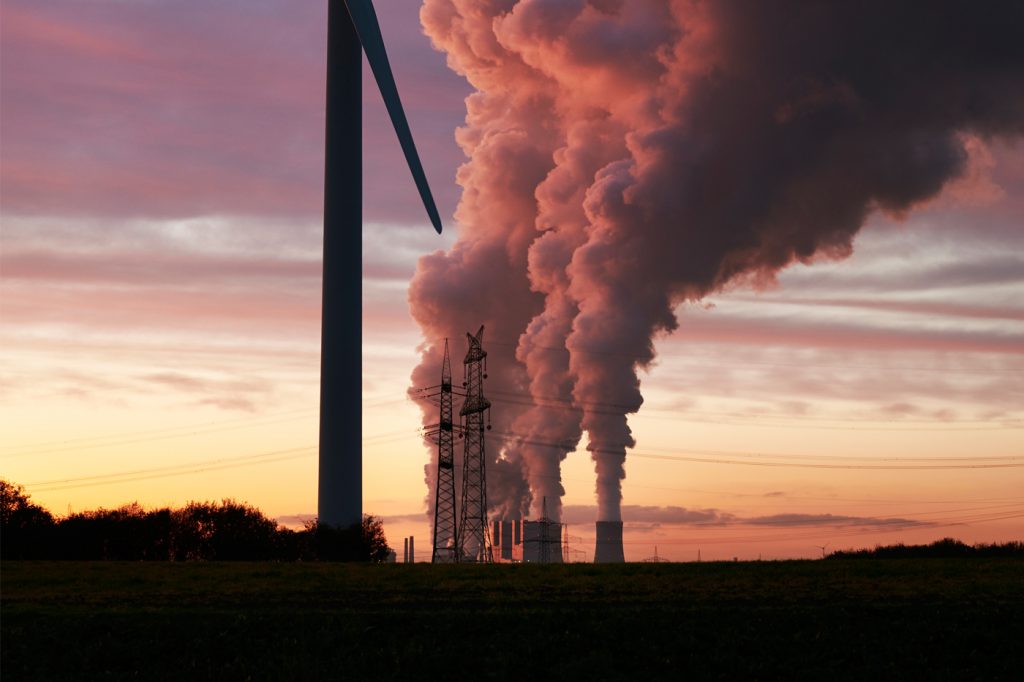‘No Banking on a Dead Planet’
Ça va bien? Hold your horses.

By Angela Yap Siew Peng
French agronomist and sustainability leader Minh Cuong Le Quan has advocated for environmental justice in Asia, Africa, and Europe for close to 30 years.
 His award-winning projects are known for putting people and their communities at the heart of market-based solutions. These pioneering ideas have garnered Minh and his team accolades, including the prestigious Clinton Global Initiative Award, the EU Energy Globe Awards, Ashden Awards for Sustainable Energy, and recognition as best-in-class solutions by bodies such as the US Environmental & Protection Agency.
His award-winning projects are known for putting people and their communities at the heart of market-based solutions. These pioneering ideas have garnered Minh and his team accolades, including the prestigious Clinton Global Initiative Award, the EU Energy Globe Awards, Ashden Awards for Sustainable Energy, and recognition as best-in-class solutions by bodies such as the US Environmental & Protection Agency.
Minh founded the Climate Change Unit at international non-profit, Geres. He subsequently chaired a global carbon-finance cooperative, designing its unique financing mechanism for improved financial inclusion of Asia in the carbon trading market. His perspective that environmental stewardship is inseparable from social justice goals has been presented to international panels, including the carbon market fora and technical bodies of the United Nations Framework Convention on Climate Change.
As CEO of Staterre, a France-based accelerator for change, he advises companies on transition and climate adaptation strategies. He also lectures on environmental stewardship at French business schools.
We share excerpts from our interview with the climate expert.
Q: Achieving net-zero by 2050 under the Paris Agreement calls for decarbonising our planet in the next 30 years – companies must do away with fossil fuels and other sources of emissions or match every tonne of carbon dioxide (CO2) emission with a ton removed from the atmosphere. What challenges will industries, including banking, face en route to sustainability?
The financial sector must wake up to the realisation that we are in the midst of a collapse.
Net-zero pledges have become the norm, but for me, it’s not a sufficient target.
Net-zero means that in 30 years, I’ll stop dumping pollutants into the air. That’s like saying, “In 30 years, I’ll stop being violent with my wife.” First of all, the timeline is way off – the state of the climate system and the current inertia require that bolder changes take place within the current decade. Secondly, it is neither visionary nor ambitious.
We are on a dying Earth and climate change is just one symptom of a sick world. There are many other symptoms, like pollution of our oceans and biodiversity loss. Nearly one-third of species on Earth are on the IUCN Red List of Threatened Species and we’ve lost 50% of total insect mass over the past 40 years.
Business and finance have a great role to play. The financial sector is the machinery, the pipes that direct the flow of monies to fuel the economic engines, and the people in control of these pipes must be ‘hit’ by the realisation that these pipes are not laid in the right direction. Therefore, whatever objectives or targets we set are irrelevant unless we address or redefine the key driver that has brought the world to where it is today: greed and materialism.
For change to happen, people must realise that finance is just an instrument, a tool in the pursuit of happiness, personal development, and well-being of society. It is not an end in itself.
Q: But greed and materialism are a universal trait – we all have it in differing degrees. How do you change that?
Firstly, it’s about key performance indicators (KPIs). Making the carrots bigger toward meaningful goals is one way to set the stage. As soon as KPIs change, business leaders, managers, and their incentives will move in the same direction. This can be seen when the KPIs of a director include data on diversity of staff, gender equality, or environmental performance.
Changing KPIs have immediate effects on the way business is done, including investment funds that have steered their fund managers to divest from fossil fuels and destructive/extractive industries by changing their KPIs. Change can happen fast, if KPIs are changed.
Secondly, we must change how and what we value as success. Currently, we attribute the greatest value to extractive or destructive industries like fossil fuels and logging, when what we need is to substitute our benchmarks and determine value based on ‘impact’ measures.
There is the budding sector of impact investing, which in my view should be the norm. Instead, it’s seen as this ‘funny little thing’ on the fringe of finance, as an extra-financial parameter or indicator instead of the core of financial performance.
Impact measures include a polluter-pay principle or reparations, the principle that people who do damage need to not just stop, but also repair and make amends. There are leadership cases, one of which is Microsoft, whose aim is not net-zero, but full responsibility for their history of emissions. This principle should apply for whatever we’ve done throughout the history of nations, of companies, and of individuals.
Q: Does impact investing effectively move the needle? Will it eventually, down the line, be just another box to tick in the regulatory checklist?
The trend we’ve seen in Europe and other countries which have implemented impact investing is that the pioneers’ values are pure; then as the field grows, you have other kinds of players trying to step in and dilute the values of impact investing. As we speak, huge forces are at play to influence the EU taxonomy, current and future.
Then the correct implementation of impact investing is a matter of governance and wider participation to ensure that the goals are preserved. How stringent or pure impact investing remains is a matter of openness and how we devise its criteria: Do we involve only decision makers, politicians, special interest groups, or do we involve society at large by including civil society and human rights activists?
Discussions involving a wider range of participants give greater credibility to impact investing. This is where we touch on democracy, on the participation of people who will press for policies and decision-making power in order to achieve the goals of impact investing. The key issue here is that market-driven forces are reined in when merged with the vision embodied in human rights and environmental activism.
On this score, transparency of information is critical. It enables us to rank and benchmark financial institutions, to see who is best in class, what the best practices are, and hopefully, inspire change.
For instance, Reporters Without Borders, an international non-profit organisation safeguarding the right to freedom of information, tracks acts of violence against environmental journalists. In the past five years, at least 10 journalists have been killed and over 50 environmentally linked press freedom violations have been registered. There is much work to do to improve this metric.
But I’m pleased that we have this level of transparency and the information to do this ranking. It also becomes a reason for people with savings, investors, and fund managers to divest from certain holdings in their portfolio.
Q: Mechanisms like carbon financing aren’t new. In fact, it failed about 10 years ago in what I would call Round 1 of sustainable finance. Today’s new targets and fresh pledges are Round 2. What failed then and how is it different today?
What happened is that there was a choice between regulation or market mechanism. The EU was pushing for regulation, of putting caps and a carbon tax; whilst the US wanted a market-based cap-and-trade mechanism. To attract the US into the Kyoto Protocol, the EU and nations in favour of regulations relented.

It’s important to note that market mechanisms like carbon financing work for simpler asset classes, such as addressing acid rains through the trading of sulphur dioxide emissions. This worked in the US, which is why they wanted to impose the same market mechanism for CO2 emissions upon the rest of the world. But CO2 is much more complex and the market mechanism failed around 2010.
The emissions trading market completely collapsed with the crumbling of the EU Emissions Trading Scheme, in part due to the over-allocation of quotas as well as the economic recession. This over-allocation was due to cronyism and political connivance between politicians and big industry in France and Italy, which resulted in the inefficient distribution of quotas in the carbon market.
Today, countries like China have taken stock of this experience and set up a carbon market that seems much healthier. Let’s see how it goes.
The key issue for me is that the carbon market is still a mechanism based on greed, not regulation. We need a stronger stick to address CO2 emissions.
Q: What does this ‘stronger stick’ entail?
Where there is bad behaviour, we need to analyse where it comes from. Part of it stems from within – the core values of individuals, organised groups, and the way society functions. It’s self-development, it’s spirituality, it’s education in a way that nurtures human values. In other words, values-based education.
We need to invest in equality and values-based education; that’s where state budgets are really critical, not only in fund size but also in the quality of education, so that individuals have the opportunity to nurture these values within and become responsible citizens.
Where education has failed, there is regulation. At the societal level, it reins in human greed and keeps bad behaviour in check. Where we detect trespasses, there must be retribution.
At the moment, compared to other criminal activities, we are too soft on environmental crimes; punishments are not severe enough. There’s a lack of retribution for bad environmental behaviour, but I think this will tighten. One day there will be very severe punishments for crimes against the planet.
Q: Are the green principles in Europe suitable for Asia?
The fundamentals – human rights and environmental stewardship – are universal. Then there are specifics that are based on people’s priorities and the balance between different forces at play in different countries or groups. There must always be regional or national adjustments.
However, Europe is not in a good place to give lessons, especially France. In a new report by Oxfam, Reclaim Finance and Finance Watch on major banks financing fossil fuels, four French banks are in the Top 15.
Q: Banking has moved toward embracing sustainability but there’s still a lot of resistance. What must happen to bridge this divide?
Crisis after crisis, I’ve seen many people from the financial sector hit by the realisation that the sector does not address their fundamental needs. They move out of the financial services industry to the NGOs in quest of more meaning and purpose in life. This lack in the financial sector needs to be addressed.
People move out of banking when they don’t find meaning or can’t see where they have an impact. If financial institutions are bent on change, they must find a way to encourage people with such drive to stay on, to support these ‘stars in the night sky’.
Change can come from anywhere. Just as a toddler’s question can pierce the adult mind, the spark of awareness can happen in the biggest, most rigid organisations. If banks have a hard time changing due to certain constraints, they can at least support their people within who want to do something better and with more meaning.
What matters is that people gather under the same tree. Whether it is for shade, for collecting low-hanging fruits, or just for the pleasure of finding like-minded friends – no matter the motivation, people must move from the barren lands to gather under the tree and aggregate.
Ultimately, there is no banking and finance on a dead planet.
Angela Yap Siew Peng is a multiaward-winning entrepreneur, author, and writer. She is Director and Founder of Akasaa, a boutique content development firm with presence in Malaysia, Singapore, and the UK and holds a BSc (Hons) Economics.